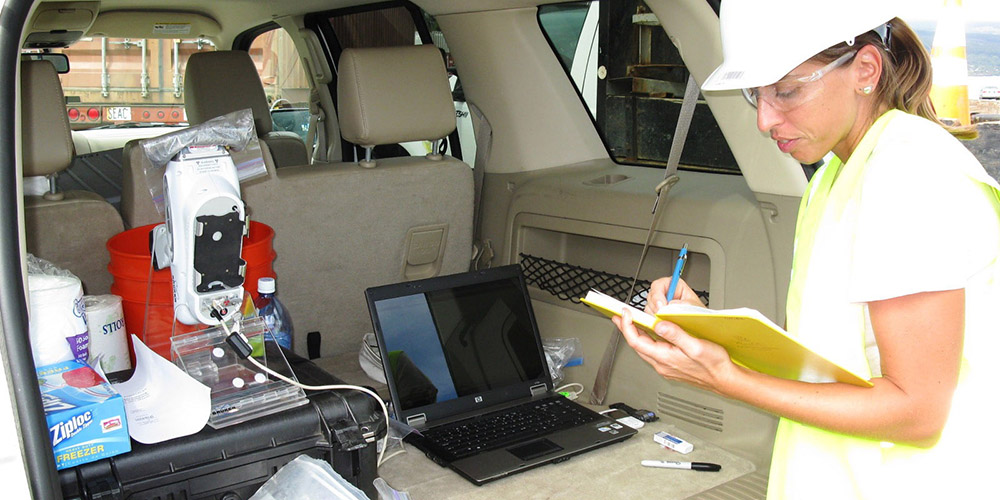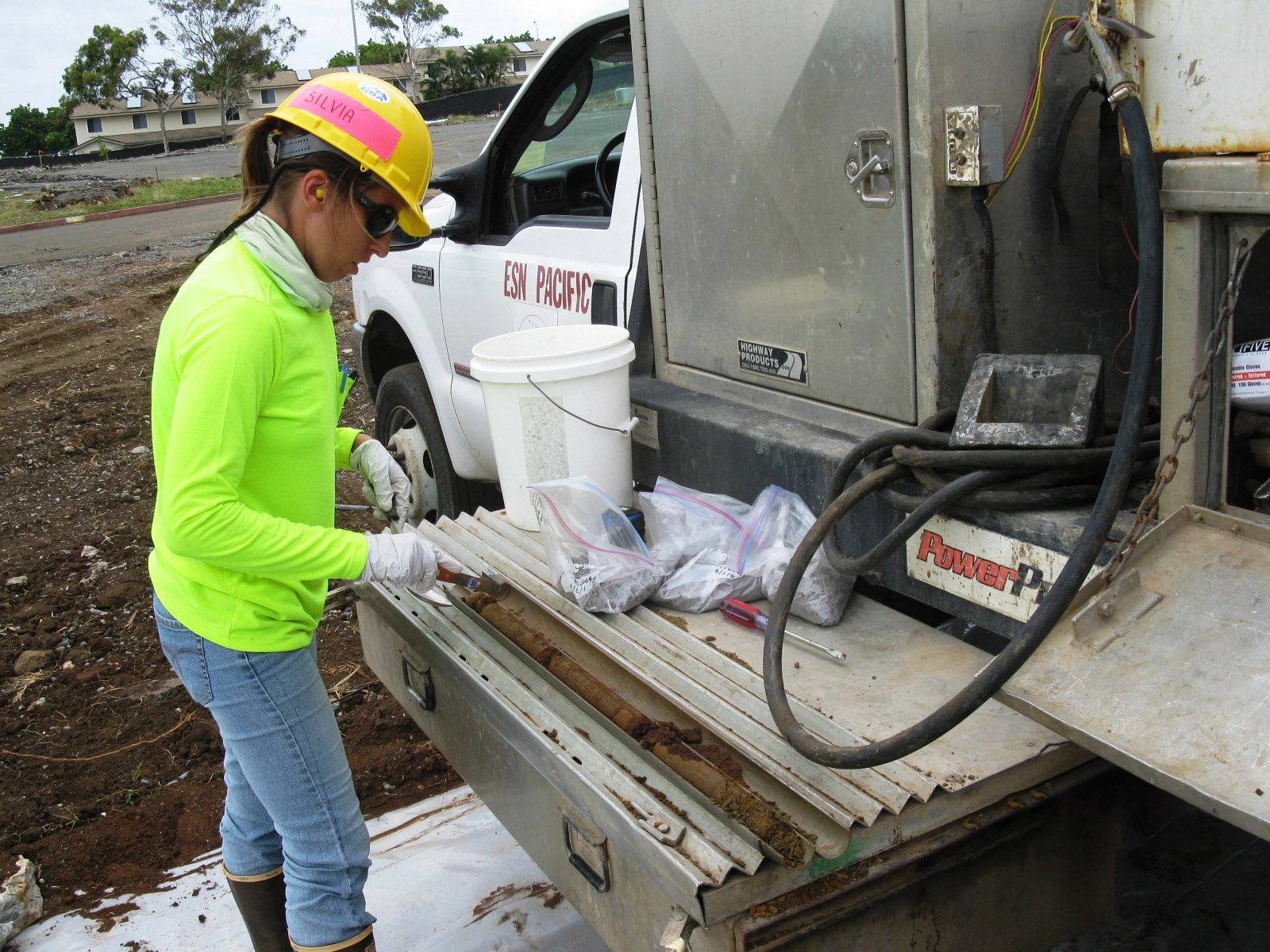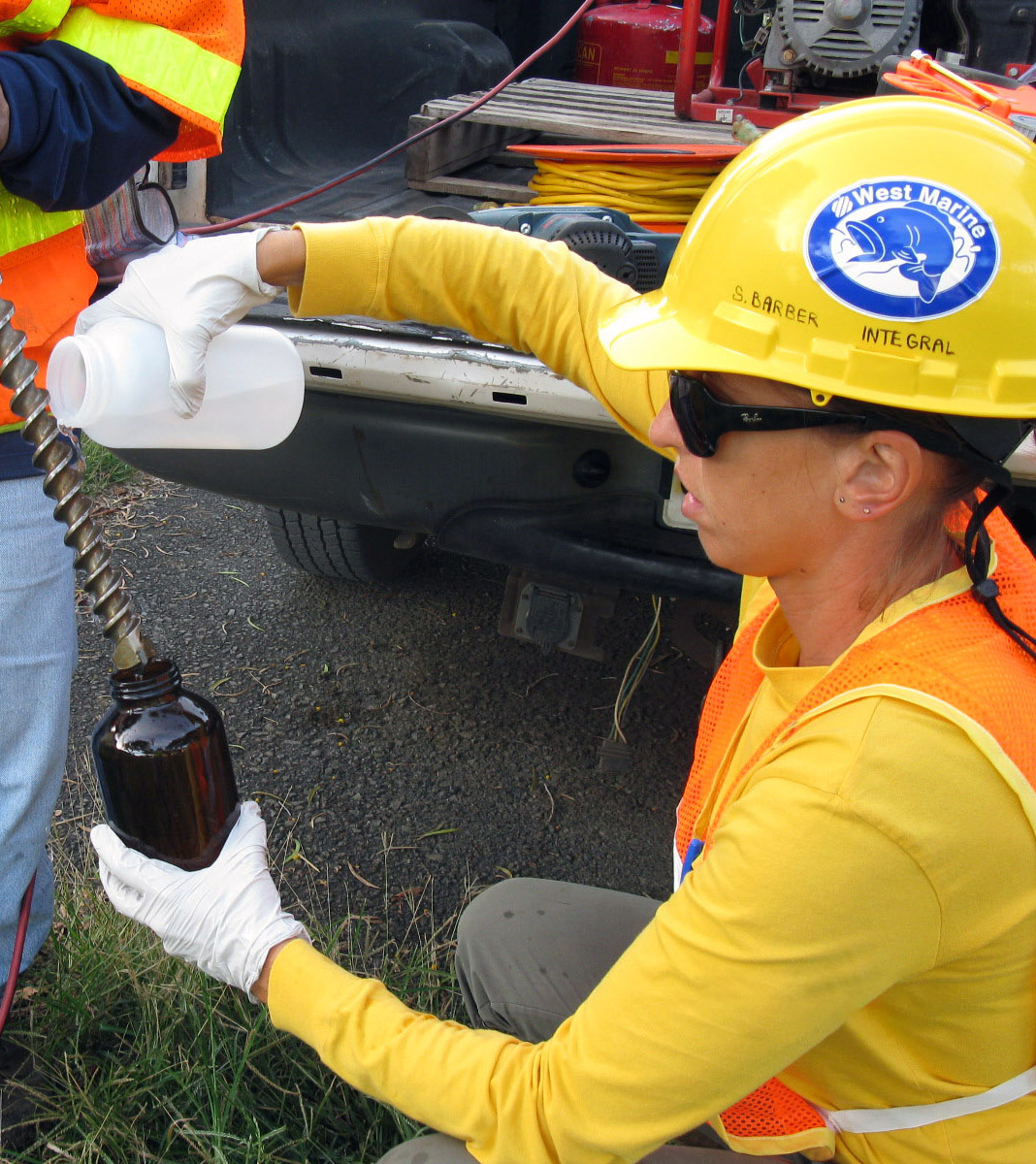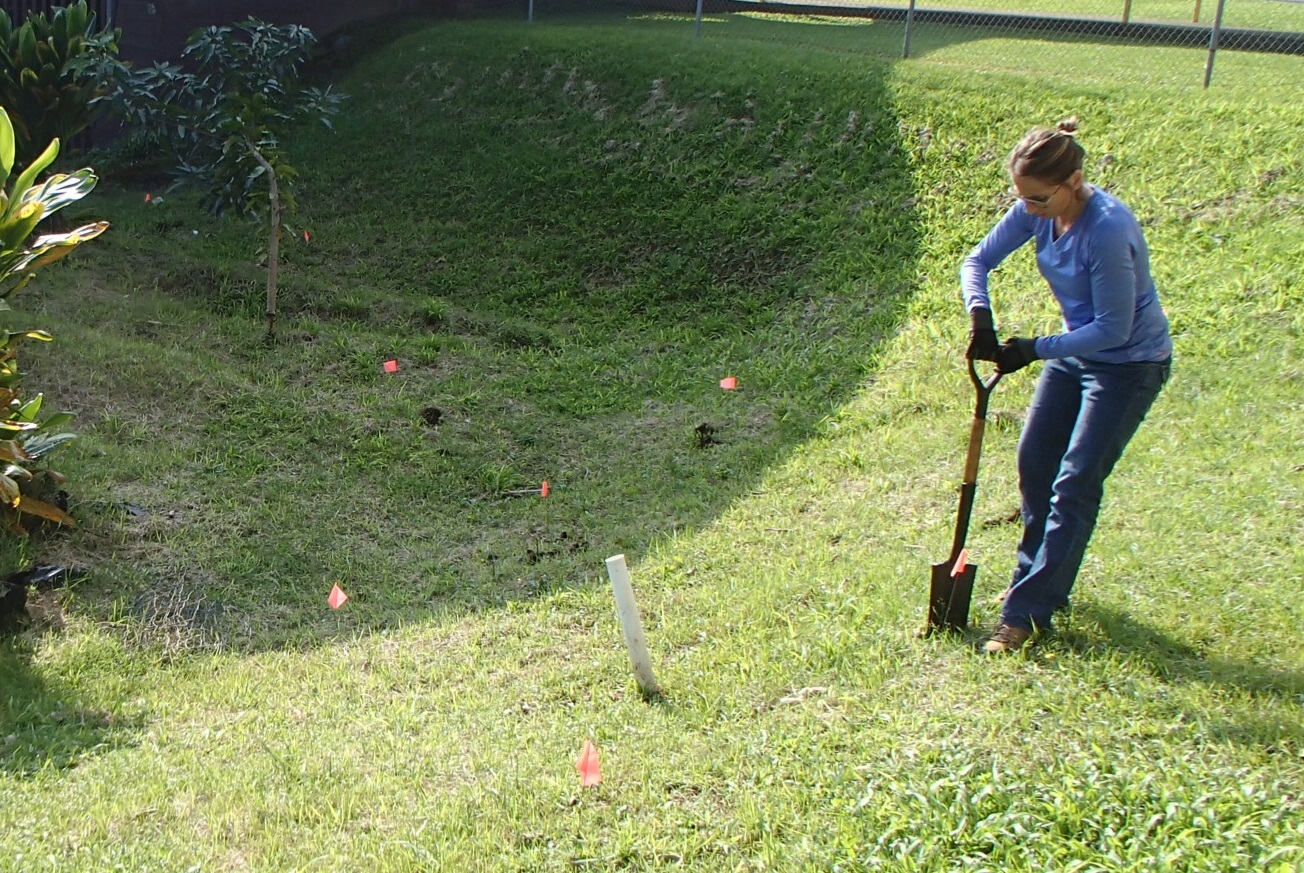
Silvia Gianetti Barber: Scientist learned critical thinking skills at Mānoa
Silvia Barber is a scientist at Integral Consulting with 10 years of experience with environmental assessment projects. A certified lead risk assessor in the state of Hawai‘i, she can often be found dressed in her personal protective equipment collecting environmental samples.
 She focuses on environmental issues related to agriculture, environmental due diligence in support of property transactions (evaluating environmental liabilities before purchasing properties: are you buying a property that is polluted, or that has caused surrounding pollution?), and litigation support. Full of energy and determined to address any form of contamination, she has participated in soil, sediment, water, air, and biota sampling at several Superfund sites (sites that are contaminated with hazardous waste, and are put on a priority list for cleanup by the EPA) in the continental United States. Born and raised in Italy, Silvia came to Hawai‘i 14 years ago to swim, surf, and pursue her master’s degree.
She focuses on environmental issues related to agriculture, environmental due diligence in support of property transactions (evaluating environmental liabilities before purchasing properties: are you buying a property that is polluted, or that has caused surrounding pollution?), and litigation support. Full of energy and determined to address any form of contamination, she has participated in soil, sediment, water, air, and biota sampling at several Superfund sites (sites that are contaminated with hazardous waste, and are put on a priority list for cleanup by the EPA) in the continental United States. Born and raised in Italy, Silvia came to Hawai‘i 14 years ago to swim, surf, and pursue her master’s degree.
How did UH Mānoa prepare you for this career?
By teaching me critical thinking. When I began in the M.S. program at UH Mānoa, I was rather gullible in science and environmental matters, believing most of what I read online, just because it sounded right. For my M.S. I learned to read and interpret scientific peer-reviewed studies, and to provide justification and references for everything I claim. I realized that some of what I believed did not have any scientific justification but was just anecdotal evidence that repeated enough to mistake for true.
 What are your best memories of your studies at UH Mānoa?
What are your best memories of your studies at UH Mānoa?
My office in Sherman Lab building, meeting so many interesting people – students and professors – of all sorts of nationalities, and taking many interesting classes. I really enjoy taking classes and learning. I even met my future husband in a class I took during my first year at UH Mānoa.
What do people ask you when they learn what your job is?
I get asked for second opinions on environmental matters: people don’t trust government officials when they state that something is safe or not safe. I recognize that often such statements come with little explanation. If it’s in an area where I have some expertise, I can explain in easier terms why it is or is not the case, providing some background and context.
A common question I get is if I have seen such and such documentary on various topics, typically documenting something very wrong, catastrophic, or toxic. My answer is to remind friends that documentaries are not peer-reviewed science, they can basically say whatever they want and go straight to the general public without any review. Therefore it’s important to take what they claim with a grain of salt: it may or may not be true. This is why documentaries are a very popular tool for causes and campaigns.
 What advice do you have for people who want to lessen their environmental impact?
What advice do you have for people who want to lessen their environmental impact?
There’s no one-size-fit-all type of approach, there are so many variables to consider – often hidden – that what might be reasonable for one place or situation might not be very reasonable for another.
You have to follow the whole chain of costs. For example, when my son was born I was asked if I was going to use cloth diapers “for the environment.” I gave it some serious thought: considering that we live in a place where electricity is very expensive and generated by importing oil by barge across the Pacific Ocean, the amount of such environmentally-expensive electricity needed to power all those hot loads of laundry tilts the scale in favor of disposable diapers that on Oahu will go straight to H-POWER (the city’s waste-to-energy plant) for incineration to generate electricity.
I’d say that in Hawai‘i everything you can do to reduce your electricity consumption is a good choice, environmentally speaking.
How would you describe UHM in one word?
Fun. I had a lot of fun while studying there. I wish I had the time to take more classes. Maybe one day!
